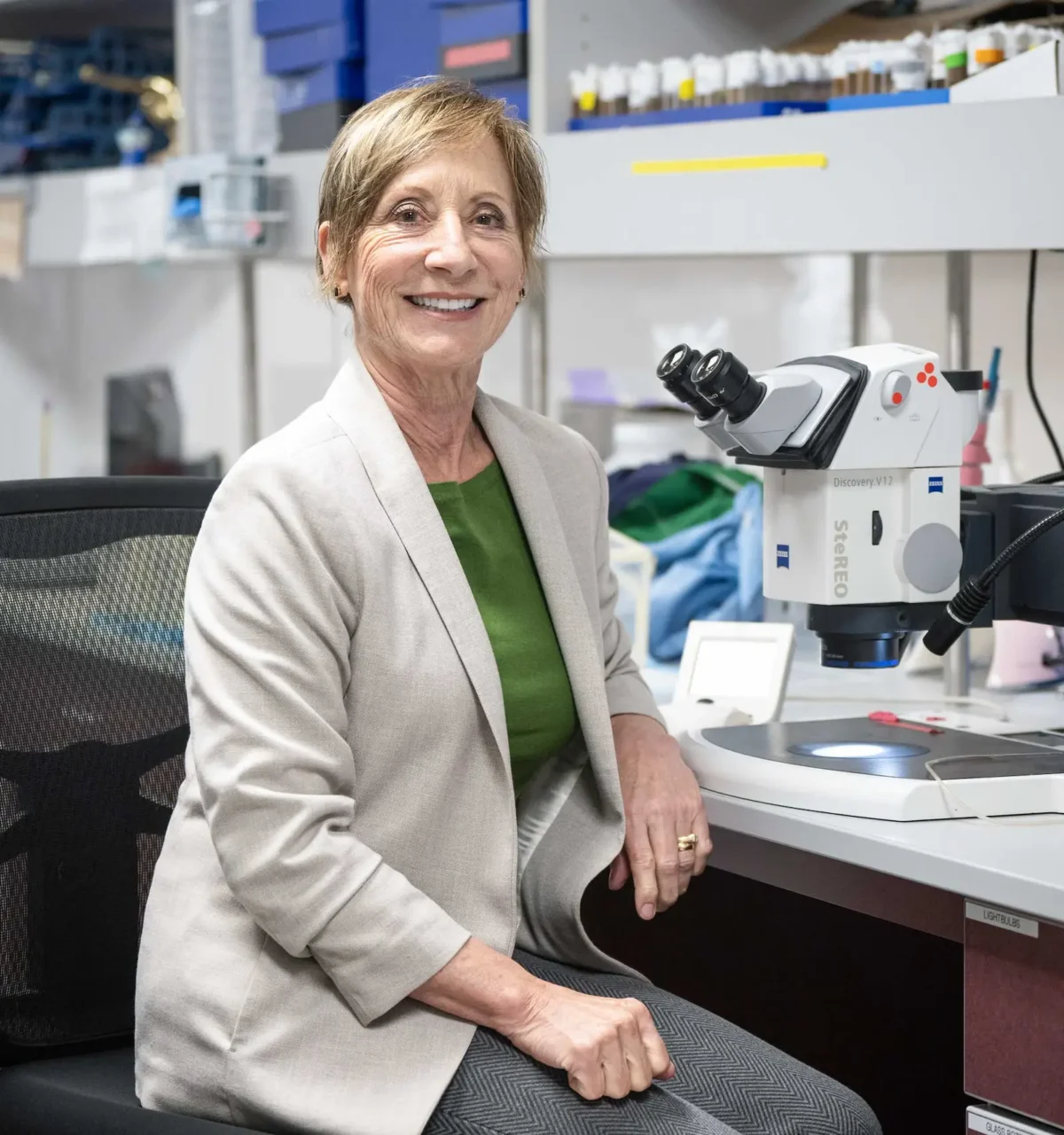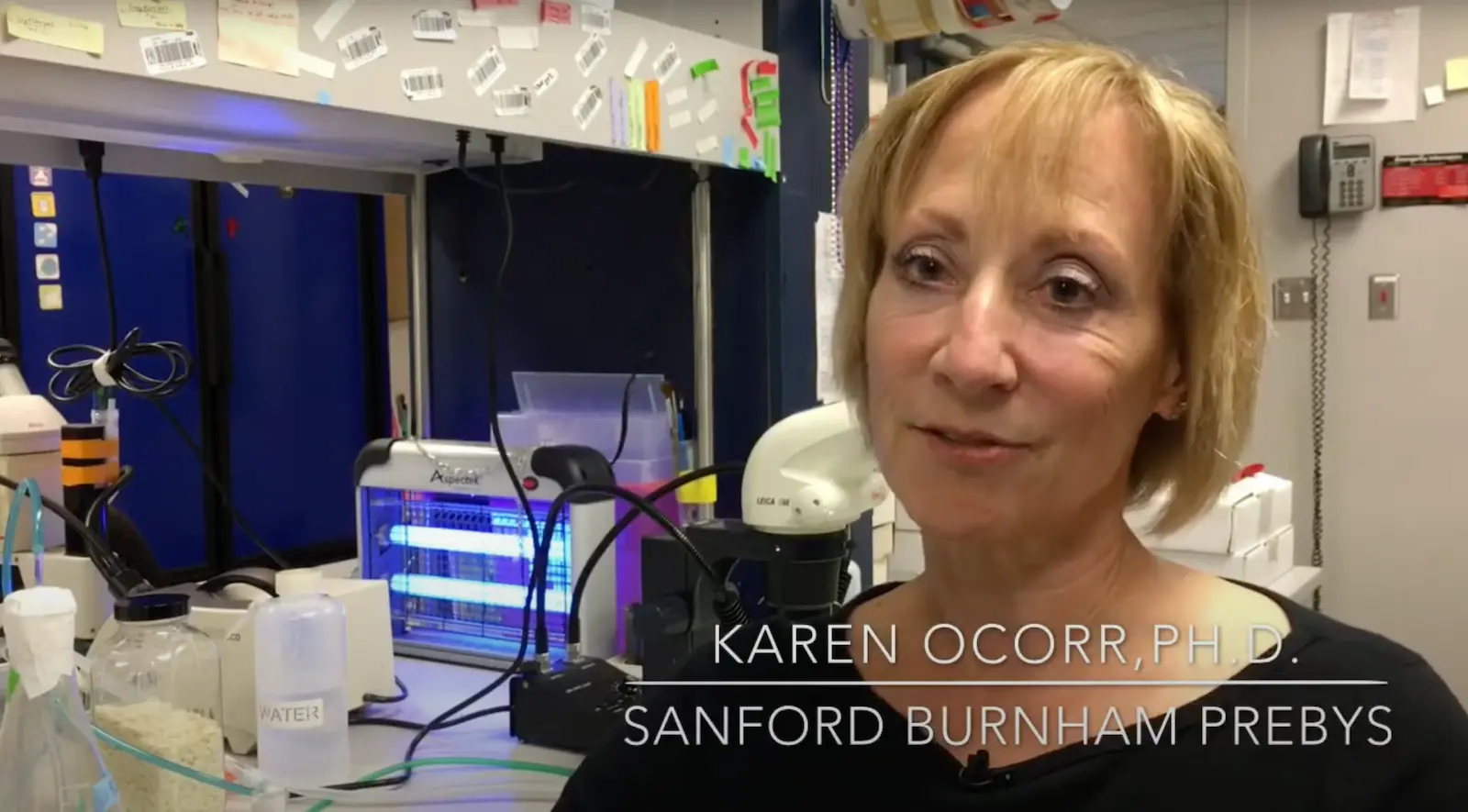After a successful teaching career at the University of Michigan I have had the privilege to “reboot” my research career at Sanford Burnham Prebys where I have had the opportunity to develop novel methodologies to understand cardiomyopathy. I have also had the opportunity to work with NASA scientists to do experiments on the International Space Station.
Education
Postdoctoral Fellow, Stanford University, Palo Alto, CA, Neurochemistry
Postdoctoral Fellow, University of Texas Medical School, Houston, TX, Neuroscience NIMH
PhD, Wesleyan University, Middletown, CT, Neuroscience NIMH
B.A., Lehigh University, Bethlehem, PA, Biology
Prestigious Runding Awards or Major Collaborative Grants
2015-2020: NIH R01 HL132241-01A1 – Using Drosophila genetics to identify molecular links between ion channel dysfunction and pathological cardiac remodeling. (PI) 2013-2018 NASA NRA #NNH12ZTT001N – The effects of microgravity on cardiac function, structure and gene expression using the Drosophila model. (Co-I)
Honor and Awards
2014: Space Florida International Space Station Research Competition Winner – Co-investigator – One of three Basic Research proposals selected for launch aboard SpaceX3 – Mission completed, live flies returned on May 18,2014
2001: Excellence in Teaching Award, University of Michigan
1997: Excellence in Teaching Award, University of Michigan
1986-1988: National Institute of Mental Health Fellowship
1983-1985: National Institute of Mental Health Fellowship
1981: Sigma Xi Research Award 1980 MBL Scholarship, Neural Systems and Behavior Course
1971-1975: National Merit Scholarship, Lehigh University
Board Appointments
2018-present: Board member American Society for Gravitational and Space Research
Related Disease
Aging, Aging-Related Diseases, Atrial Fibrillation, Cardiac Fibrosis, Cardiomyopathies, Heart Disease, Metabolic Syndrome, Molecular Biology
Phenomena or Processes
Actin Cytoskeleton, Calcium Signaling, Cardiovascular Biology, Cell Signaling, Extracellular Matrix, Fuel Metabolism, Integrins, Metabolic Networks, Phosphorylation, Stress Response Pathways
Anatomical Systems and Sites
Cardiovascular System, Heart
Research Models
Drosophila, Larval Zebrafish Heart, Zebrafish
Techniques and Technologies
Biophysiology, Cellular and Molecular Imaging, Fluorescence Microscopy, Gene Silencing, Genetics, In vivo Modeling, Ion Channels, Live Imaging, Microarrays, Microscopy and Imaging, Molecular Genetics, RNA Interference (RNAi), Semi-automated Optical Heartbeat Analysis (SOHA), Systems Biology, Transgenic Organisms
The Ocorr Lab is investigating the cellular and molecular basis of adult heart function and cardiomyopathies using the genetic model system Drosophila.
We use functional, electrophysiological, biochemical and immunohistochemical techniques that allow us to examine the roles of genes and gene products in cardiac channelopathies and stress-related cardiomyopathies.
Our lab pioneered the development of a novel methodology (Semi-automatic Optical Heartbeat Analysis, SOHA) that permits the quantification of heartbeat parameters in model systems with small hearts.
Using this system we have identified several ion channels in the fly heart that play prominent roles in repolarization of the human heart and cause arrhythmia in both the fly and in humans when mutated. We also have developed a number of other disease models including a diabetic-like cardiomyopathy induced by high sugar diet and hypoxia-induced cardiomyopathy.
Recently we have begun collaborations with NASA (by winning a Space Florida International Space Station Research Competition). We are using the fly to uncover the molecular/cellular basis for cardiac and muscle atrophy in astronauts exposed to extended periods of microgravity despite extensive exercise regimes aboard the ISS. Our flies were launched aboard SpaceX 3 for a month-long exposure to micro-gravity.
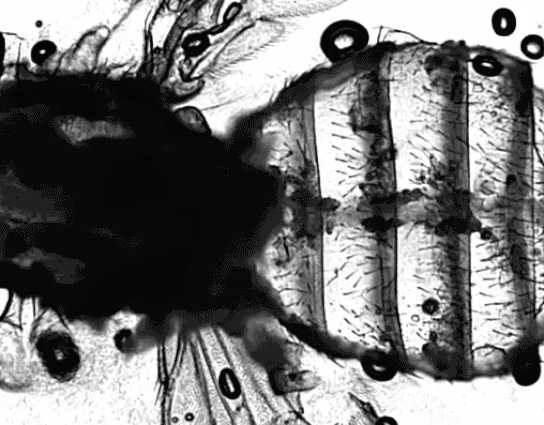
Karen Ocorr’s Research Report
My lab is working to understand the cellular and molecular basis of heart disease. One project is focused on the genetic basis of Atrial Fibrillation. This project is a collaborative one with the lab of Alexandre Colas. We are combining two model systems, the fly in my lab and human induced cardiomyocytes in his lab, to identify AFib genes that have been implicated from patient studies. Another project focuses on the role of metabolism in cardiomyopathies. This is because obesity and metabolic syndrome are linked to an increased risk of heart disease. We are studying the role of a key metabolic signaling molecule in hypertrophic cardiomyopathy. A separate effort is focused on the role of gravity in heart function. These studies will provide important information for future habitants of colonies on the moon and Mars. But they are also relevant to patients who are bedridden and to patients with muscle wasting (sarcopenia).
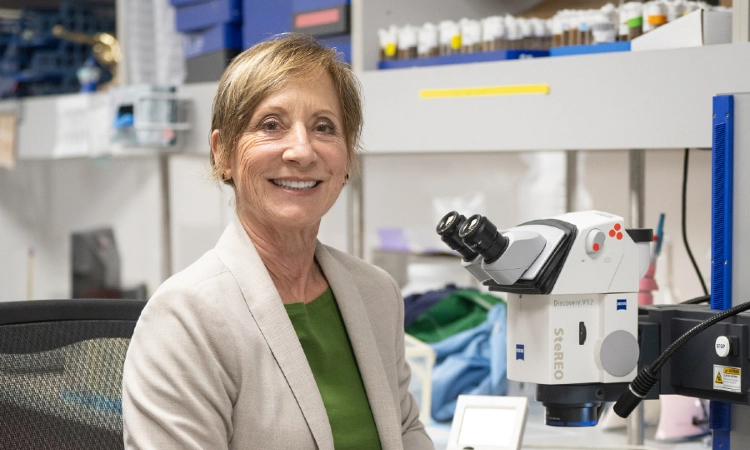 Aug 2, 2024
Aug 2, 2024Controlling thickness in fruit fly hearts reveals new pathway for heart disease
Aug 2, 2024A new study in Cell Reports details how a protein previously associated with regulating metabolism in the liver also plays…
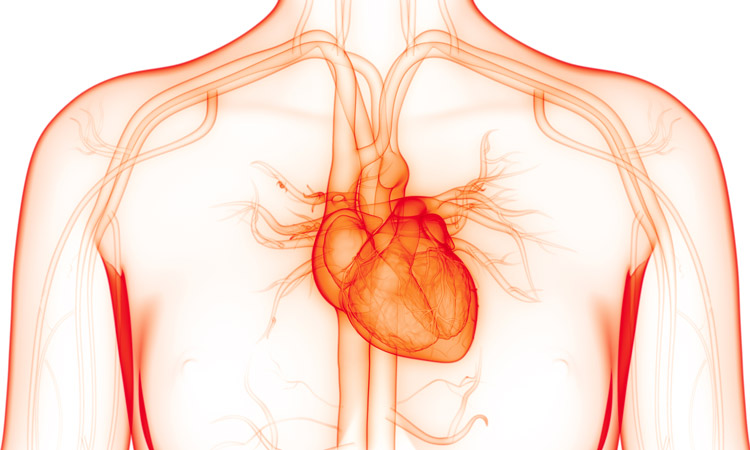 Aug 15, 2023
Aug 15, 2023Scientists unite to get to the heart of AFib
Aug 15, 2023A collaborative study led by Institute researchers is paving the way to identifying gene networks that cause atrial fibrillation (AFib),…
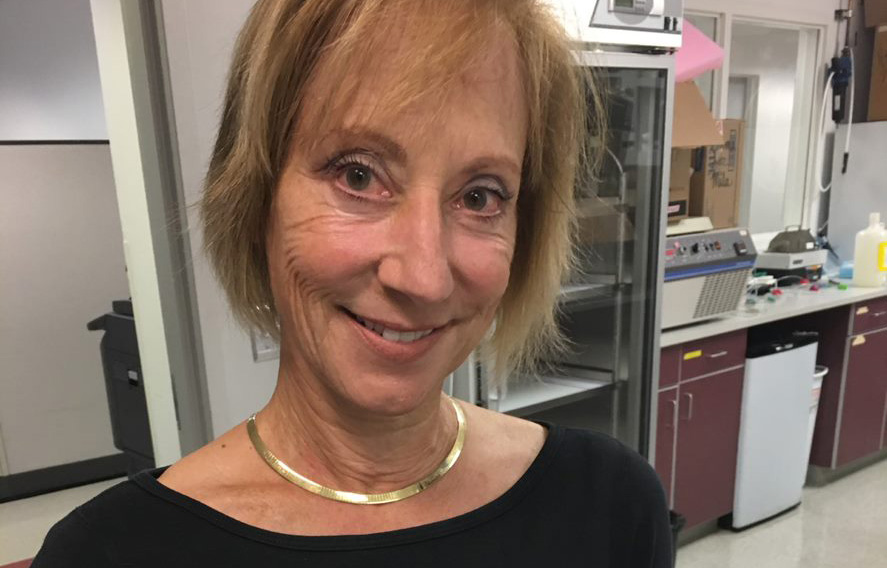 Sep 28, 2021
Sep 28, 2021NASA awards $2 million to study effects of low gravity on muscle and neuron function
Sep 28, 2021As part of their larger initiative to understand the effects of space conditions on different organisms, NASA has awarded $2…
 Dec 14, 2020
Dec 14, 2020Our top 10 discoveries of 2020
Dec 14, 2020This year required dedication, patience and perseverance as we all adjusted to a new normal—and we’re proud that our scientists
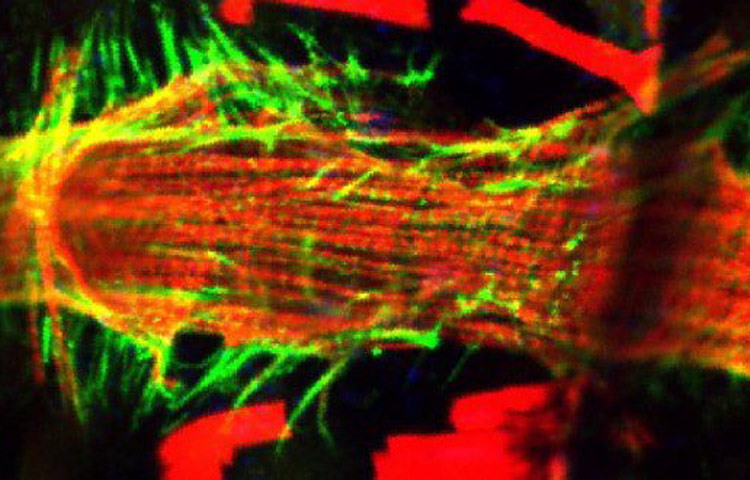 Nov 23, 2020
Nov 23, 2020Fruit flies reveal new insights into space travel’s effect on the heart
Nov 23, 2020Scientists identify protein production changes in the space flies that weren’t on the radar of heart researchers—opening new avenues for…
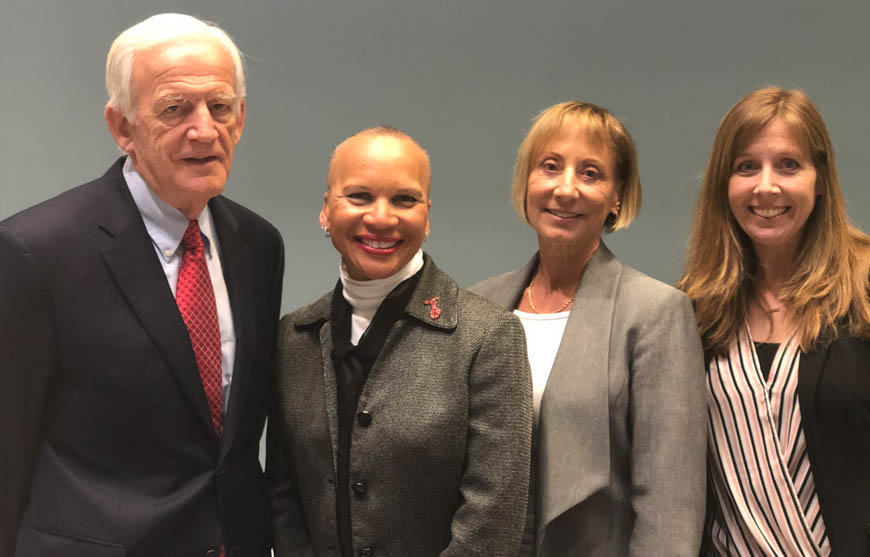 Feb 15, 2019
Feb 15, 20195 takeaways from Insights: Heart Disease
Feb 15, 2019It’s easy to forget about the fist-sized organ in our chest. But the heart is arguably the most important muscle
